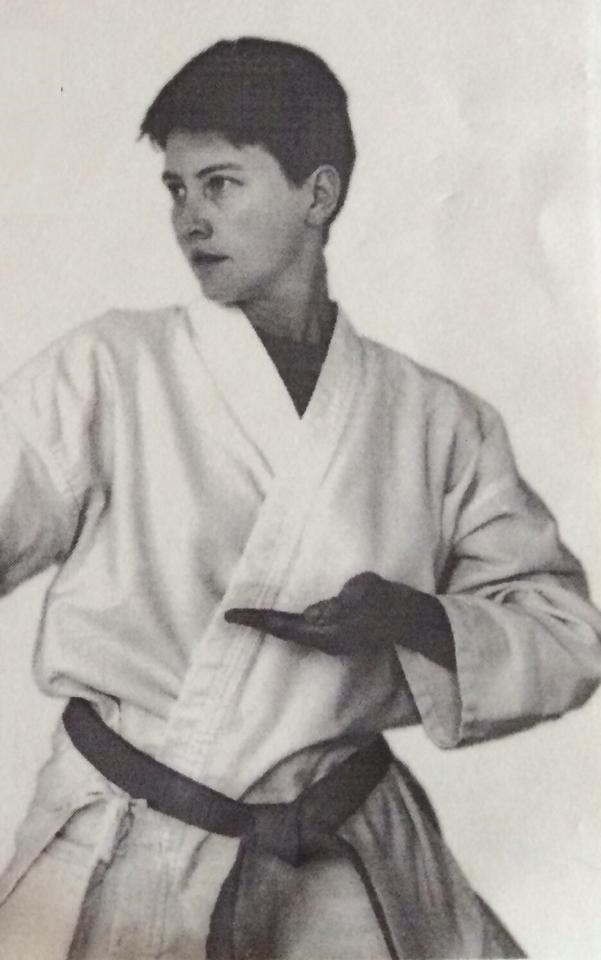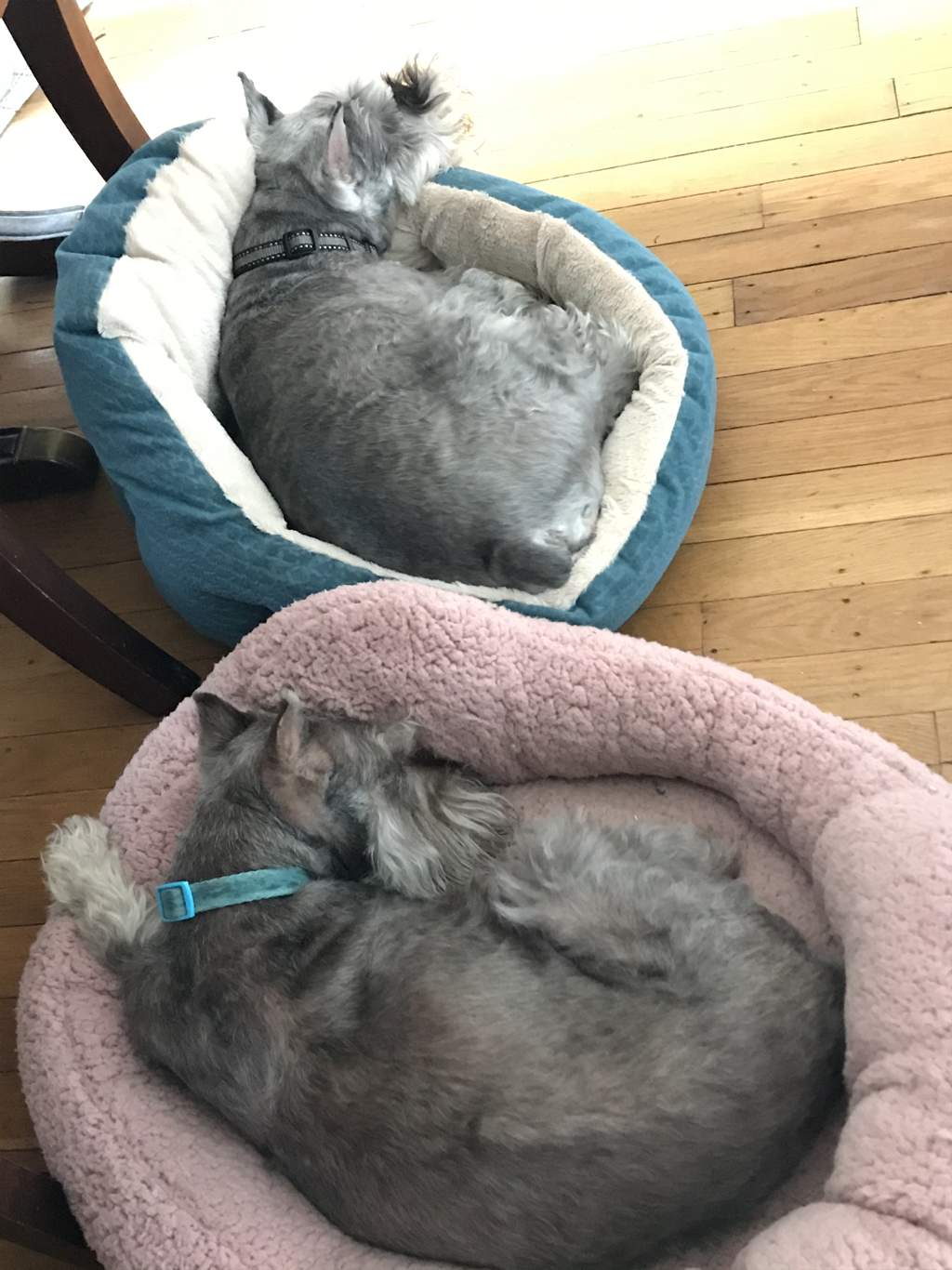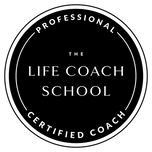|
We've probably all heard or said something along the lines of "Don't let perfect be the enemy of good," or maybe it's "Don't let perfect be the enemy of done." In my daily work, the latter is usually the mantra I need to move toward.
Today I set forth a new intention: "Don't let perfect be the enemy of fun." When I was in my late twenties, I decided I needed to learn how to defend myself. I was a small town girl living in a lonely world -- ummm. More like, I was really unused to living in an urban center and felt vulnerable and wanted to feel better about that. I found a martial arts practice led and populated by (mostly) lesbians, and since this was 1991 and I was still pretty new to The Life, I was very interested in being surrounded by a supportive vibe. The funny thing though is that this martial arts school was quite traditional and part of the unfamiliar-to-me world of martial arts, which is hierarchical and enmeshed in a male-centric worldview. That was okay though. I learned through that experience that there is a lot I can learn if I just shut up (and quiet my mind) and stop resisting. Ironic (Alanis, is it ironic?) that I learned that while learning to fight. It was also my first explicit exposure to meditation, including the basics about sitting and focusing on my breath. I would not describe myself as having loads of physical prowess. I can be stubborn, though. I was not a natural, but I learned that if I kept showing up and kept trying, there would be a place for me at my school. And I advanced. Eventually, after 7 years, I earned my black belt. Trust me -- that is a long time to take to get a black belt. To people who don't know about martial arts, that I got one at all makes it sound like I must have been really good. But the truth is, in martial arts, 1st Degree black belt is really just a mastery of the basics. There are probably millions of people with black belts, and a whole lot of people with much higher degrees of black belt. My instructor during that time I believe was a fifth or sixth degree black belt. I was still just me, I could execute a decent side kick, I broke a board or two with my hands and feet, and I got to wear a black uniform after that, which was quite appealing and looked cool. Along the way, I competed in some local tournaments, an international LGBTQ tournament hosted by my school (I got a silver medal in sparring! Apologies to that Dutch woman to whom I gave a bloody nose), and in two Gay Games -- New York in 1994 and Amsterdam in 1998. At the tournaments, there were always hundreds of people who could have handily kicked my ass. It's weird to think you've accomplished something, but it might actually mean nothing at all, depending on who you're with. These days, I'm having a similar relationship with the mandolin. I want to play well, but I'm not a natural. I keep showing up for my Skype lessons and my instructor is always very nice to me. She's made it clear she won't fire me for being totally average. I'm slowly, slowly learning some music theory to build some musical independence, I've got a lot of chords under my belt, I can kinda get my way though some songs. It's been four years of sort of working at it. I play nothing perfectly. Maybe it feels too much like when we had chair try-outs in band. I would practice the assigned piece a jillion times (my instument then was orchestra bells) not because I really cared about the chair. I just didn't want to embarrass myself in front of my classmates. With the mandolin, I resist practicing. This is not the road to improvement. So I'm trying out the "Don't let perfect be the enemy of fun" mantra. It's okay to be average and enjoy playing for the fun of it, right? I don't expect that I'll ever be a performer, but maybe it's really a secret dream that if I can let go of, I can just have fun. When I started, I set forth a goal of being passably good in social play situations by the time I'm 73. I'm still on track for that. I might get there early even, if I practice. I haven't practiced martial arts since 2002. After about 10 years of working at it, I stopped because the challenges of my then-job and new motherhood just wouldn't allow me to bring the kind of intention to it that I felt was required. I still have my belt and my uniform, More than that, I have the basis in meditation, the breathing skills, the poker face, and if if necessary, a well-executed side kick. But quitting felt like a relief. In hindsight, I didn't learn to have fun with it. So maybe one additional lesson from my martial arts days is that I need to find the fun so that when I'm 73 I won't be writing a blog post about how I used to play mandolin. Ready to start your next big thing? Click here and let's go! It's easy to be aware of when you don’t feel your best, especially physically. For me, I get migraines as much as nine times a month. If I sense it coming on early enough, I can medicate and mostly feel okay but not great. Fortunately I don’t get glutened very often. That makes me really sick so I guess a gift of the pandemic is that I don’t eat out very much.
When we feel bad emotionally, we might not know it right in the moment. Or, we may know we feel bad and think it's because we do not have control of the circumstances in our lives. Or maybe that our actions are out of control. Overeating. Drinking too much. Sometimes we may not even notice when we're feeling okay. Is it possible to appreciate how often we do feel good? (The answer is yes, but it may take some practice.) And when we are off our game, then what? Enter self-compassion, the art of cutting ourselves a break. The irony about self-compassion is that we do more, not less. We do better, not worse. It makes us nicer to other people too. And that, in turn helps us feel better. Ready to feel better? Click here to get started. |
Archives
January 2024
|



 RSS Feed
RSS Feed
